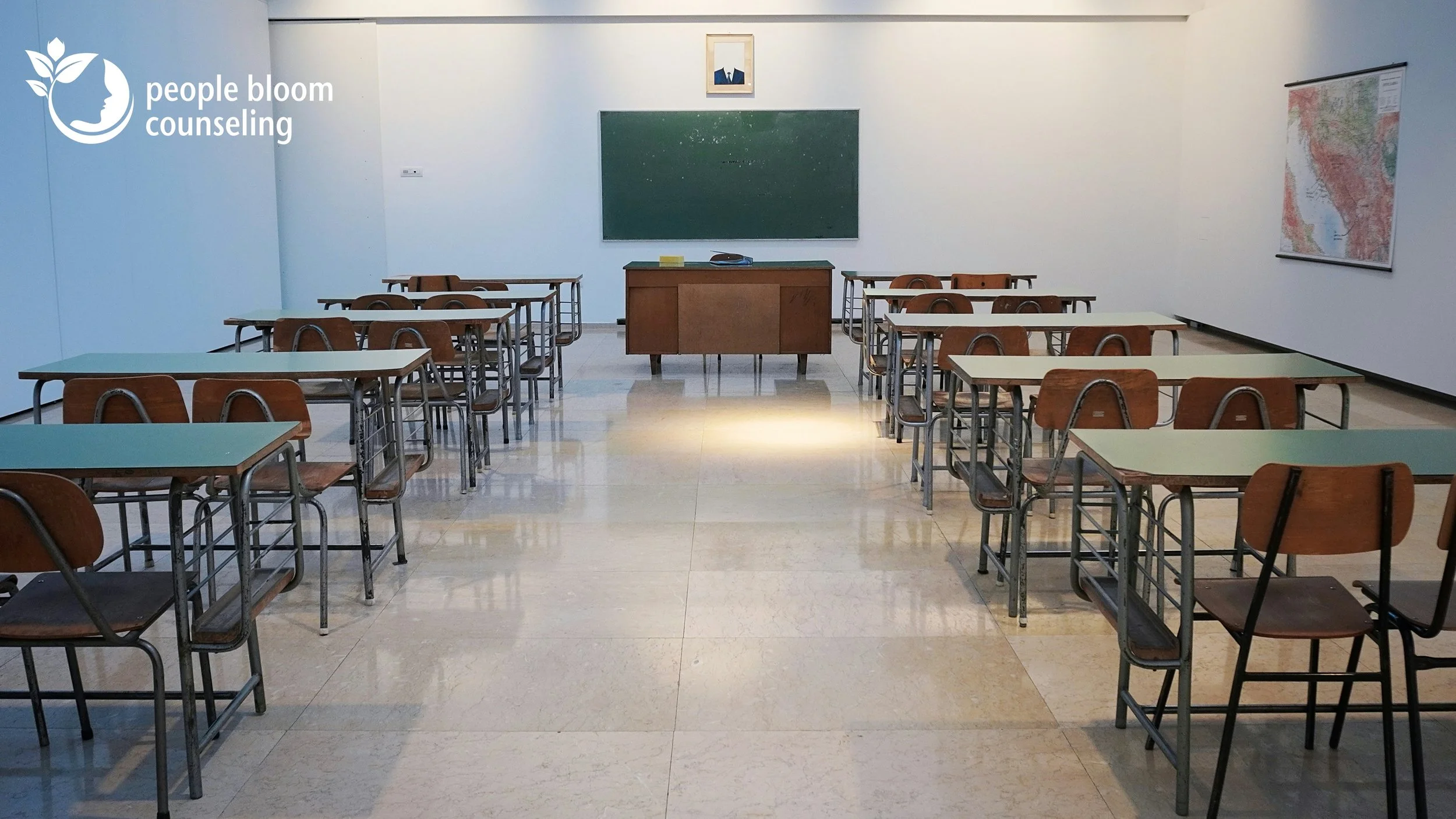The moment you step into a school, you can feel that it’s a special place. Students are learning, growing, and having those “aha” moments, and being part of that is incredibly meaningful. If you have ever worked in a school, you know how rewarding that can be.
You also know how hard it is to be an educator.
As a former teacher and school counselor, I get it. I have worn all the hats. And more often than not, it felt like I was failing at those various roles, while relationships, healthy habits, and my own well-being fell by the wayside.
Between demanding workloads, tight deadlines, ever-changing policies and expectations, and a work/life balance that feels nonexistent, it feels hard to manage. This is especially true with the natural “ebb and flow” to the school year, when certain stretches of time feel more hectic than others. Some seasons feel manageable, while others feel like they’ll never end. You didn’t choose education for the paycheck, but rather to make a difference. Sometimes that sacrifice comes at the cost of your own mental health and well-being.
Everyone gives the usual advice, like practice self-care and to “remember your why,” but I imagine you are tired of hearing that.
Let’s explore a few things that may actually help.
Task Batching, Not Multitasking
Multitasking sounds productive, but it drains your energy quickly. Task batching is when you group similar tasks into a dedicated time block. For example, set aside 30 minutes to answer emails instead of checking them (and responding to them) throughout the day. During that task batch time, you are focused solely on that task and not distracting yourself with other tasks.
When switching from task to task, you lose productivity, so fewer mental switches leads to less stress and more efficiency. It’s not easy to do in a school environment (where distractions are plentiful), but it’s worth a try. Look to your colleagues to help you honor this time block and discourage them from interrupting you during this dedicated time.
Be Mindful of Your Connections
Work friends can be lifesavers, but it can also unintentionally pull you into constant negativity. Venting is normal, but when it turns into gossip or chronic complaining, it can be exhausting. Pay attention to who gives you energy and who drains your energy. Connections outside of education are also important so that work isn’t the only thing you talk about.
Setting Boundaries, For Real
It’s okay to not bring work home with you. I know that may feel impossible, especially when you want to “do it all.” I have graded papers and sent emails at night, too. The truth is, the to-do list will still be there tomorrow. Even when you work non-stop, the list never really shrinks. Without boundaries, burnout becomes inevitable, and it sends the message that you’re always available. You are allowed to step away, and you need to step away. Consider filling your time outside of work doing things that energize you and bring you joy.
Analog Hobbies and Limiting Screen Time
Scrolling on your phone might feel like a “relaxing” activity after a long day at work, especially when you are physically and mentally drained at the end of it. However, it keeps your brain in a constant state of overstimulation, and it leads to fatigue, poor sleep, and poor focus. Getting offline is helpful for your mind and body.
Analog hobbies, ones that don’t involve a screen, give your nervous system a much-needed break. This can include creative hobbies such as coloring, painting, crocheting, etc. It can also include brain-based activities like crossword puzzles, trivia, learning a language, etc. Lastly, physical movement like yoga, hiking, and walking can also be helpful. If movement and being outdoors appeals to you, Walk and Talk Therapy can be a great option too.
It’s Okay to Ask for Help
You spend your days supporting others and it’s okay to need support too. It’s hard to ask for help, but there’s no shame in seeking it if you are stressed/burned out, overwhelmed, and struggling to balance it all. Talking to a mental health professional can help, especially one who understands the unique demands of being an educator. You don’t have to carry the burden alone.
I’m here for you.
We’re thrilled to have Kristin Calvert at People Bloom Counseling, a Redmond psychotherapy practice in WA! She helps neurodivergent teens with executive functioning. She also supports educators, parents, and adults going through burnout, and various life transitions. This year, she hopes to engage in more creative hobbies, and explore more hiking trails and parks in the area!







